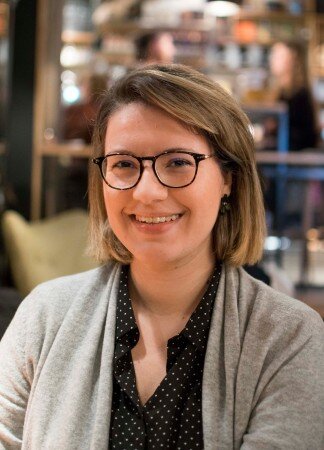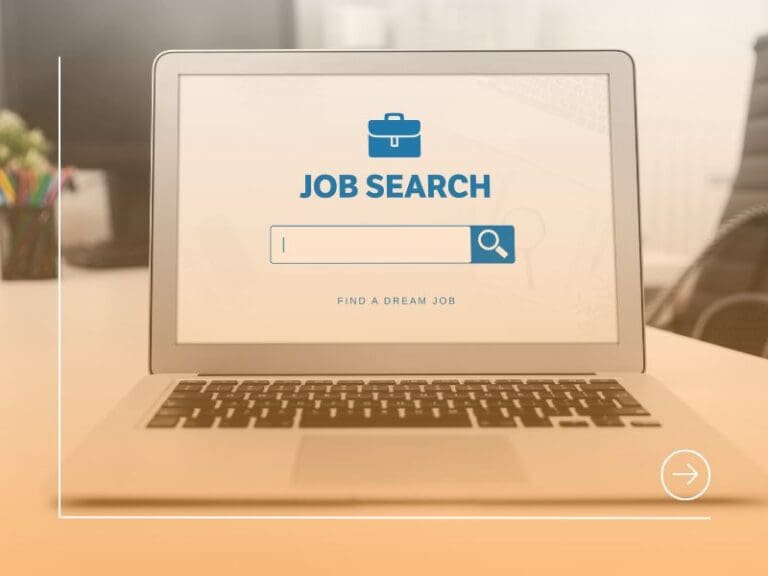Read more about Marinas story.
What work were you doing previously?
I was working as a geotechnical engineer in specialist and corporate consulting firms.
I was involved in a variety of projects ranging from design and risk assessments for site redevelopments in London to research work on offshore wind turbines in the North Sea. My role was mainly technical with some commercial exposure, depending on the project.
What are you doing now?
I work as a software engineer at a fast-growing Series B start-up, developing a new Talent Operating System for enterprises to attract, engage, and retain the best talent.
Two years ago, I was shortlisted in the Tech Star Category of the DevelopHER Awards whilst working for an early-stage fintech start-up on a cash-flow management tool for small and medium businesses.
How did you feel in your work before you decided to make the change?
I went through a very difficult phase of intense anxiety for about a year. I lost interest in my career, which had always been one of the cornerstones in my life.
Work–life balance was non-existent and I dreaded going to the office every day. It felt like I was in a well-scripted role, performing all my tasks to excellence, receiving prestigious awards and promotions as a result, and yet I felt deeply unhappy.
Why did you change?
The lack of emotional reward, support and satisfaction from my job were the biggest issues for me.
I wasn’t passionate about what I did; I was just very good at it. And this is not a good enough reason for me to spend the rest of my life in a certain position, environment or industry – especially when that industry often has a shaming culture, with old-school ways of thinking and slow-paced project lifecycles.
I appreciate that being motivated, accomplished and driven at work at all times is a big ask but a necessity for me to be happy in my life.
When was the moment you decided to make the change?
It was one late evening almost four years ago, coming back from work, when it hit me.
I realised that I was often spending more than half of my day at work without enjoying it. I realised that I needed a whole weekend to sleep and recover from the week instead of enjoying my free time and planning my future. I remember asking myself if there could be any people out there who work hard and still love what they do, only to conclude that I wasn’t one of them. Working hard, I can live with; working aimlessly, I dread.
And that was it. In the following few days I quit my job without any concrete next steps. The first time in my life without a detailed plan felt like a moment of terror, but it was also an absolute blessing to start fresh.
How did you choose your new career?
After quitting my job, I decided to have a break and spend a couple of months exploring potential options before setting a plan for my next move.
It wasn’t easy and certainly created a big hole of insecurity, but I got the space and freedom to reflect on my strengths, my interests, my transferable skills and my future possibilities.
I attended lectures and meetup events on a variety of topics from marketing and creative writing, to teaching and programming. I also spoke to many friends and acquaintances from different environments to explore what industries exist, to help understand my ‘triggers’ and passions.
Coding appealed to me for many reasons. Despite being a technical topic, I find it very creative and rewarding as you can see the tangible results of your work readily. You can quickly prototype ideas and build products from fun games to productivity tools and cash-flow management applications.
Technology is an exciting space to be moving in, especially because you meet open-minded people and work towards ideas that can make our everyday lives easier.
Modern start-ups apply an interesting model, namely agile product development, where work is carried out in short iterations with dynamic feedback loops. I’m a big fan of this approach, as it enables constant learning and improvement.
Are you happy with the change?
Totally! I feel refreshed and positive about my current career path.
Since shifting, I’ve never looked back. I’m grateful for everything that led me to the moment when I realised I wanted to change, and I’ve brought all my previous lessons with me in my new professional direction.
As I’ve been mainly working for tech start-ups, I constantly learn new things and grow in different areas. I’m also surrounded by fresh, ambitious and forward-thinking people in an innovative culture, which is extremely rewarding and motivating.
The biggest shift in my mindset has been to learn to be open to new opportunities. I now seek new career avenues constantly and have accepted that the modern market is so dynamic that it’s quite possible to change career again in the future. In fact, I’ve recently completed a course in coaching / counselling, as this is a new area of interest that I’m exploring.
What do you miss and what don’t you miss?
What I miss the most is a few colleagues I worked closely with, who supported me and made my work days bearable.
Sometimes, I also miss the thoroughness of academic research on scientific subjects.
But I certainly don’t miss excessive competitiveness, long working hours, rigid mindsets and workflows, and exhausting consultancy politics. After coming out of my anxiety phase, I learnt not to see everything in black and white; every job, career, work environment and project is a lesson to be learnt. The question is always what you decide to do having built new knowledge through your experiences.
How did you go about making the shift?
I started coding as a self-taught developer whilst preparing for an intensive 16-week bootcamp run by the peer-led non-profit organisation Founders & Coders.
In the meantime, I got engaged in various London-based programming and tech communities, and learnt faster together with other ambitious developers of various backgrounds and levels.
I signed up to online courses, took part in hackathons and chased the path I wanted out of pleasure and passion, rather than following a set curriculum in a strict academic environ
ment.
The coding bootcamp was an amazing experience for me on so many levels, from technical competency and product design, to team working with people with diverse backgrounds and personalities. It prepared me perfectly for my new professional career.
What didn’t go well? What wrong turns did you take?
Hitting the bottom and rage-quitting weren’t among the top moments of my life.
I would’ve loved to have been more proactive earlier on in my career, explored more avenues after graduating from university, and taken more time off for self-care as a professional.
I now appreciate how important it is to pause and reflect on what I truly enjoy and factor it in before I make any decisions.
Making the change was a winding journey with lots of moments of doubt. Managing pressure from my old career network and close family could have gone better. If I could do it all again, I would have set clearer boundaries and not let anyone discourage me.
How did you handle your finances to make your shift possible?
Once I made up my mind to change career into software development, I decided to self-learn full-time and apply for the highly selective 16-week coding bootcamp as soon as possible.
I knew that the cost of living in London would take its toll. I focused all my energy on preparing for and applying to this tuition-free course, so I didn’t work alongside studying. Learning to code for free worked well with my financial situation and increased my willingness to make the shift.
I was fortunate enough to have savings I could use during the bootcamp whilst also having endless support from my partner, both emotionally and financially.
What was the most difficult thing about changing?
I would say that managing finances and dealing with social pressure were the two most difficult things during my change.
I had to use most of my hard-earned savings to make an investment in myself and start a completely new career path. At the same time, many people, including old colleagues, friends and family, projected their conservatism and fear onto my career change.
What help did you get?
My career change journey started with a Careershifters workshop on an evening after work, a few days before I quit.
This workshop was extremely useful to me. I realised that there were so many people out there sharing the same fears and feelings as me when it came to their careers. That was the starting point for changing my life.
From that point onwards, I became more vocal and talked with many people seeking information before making any decision on my next career steps.
In parallel, I got mental health support from a cognitive behavioural therapist. This helped to build up my resilience for a challenging career shift. I also started to practise mindfulness.
What resources would you recommend to others?
There are many helpful online resources that are one click away: shared knowledge that can help people make informed decisions about their careers and lives in general.
I discovered many online communities and met in person with a lot of people through meetup.com.
I also got useful insights and carried out a self-assessment through the self-help book by Richard Nelson Bolles, What Color Is Your Parachute?, intended for job-seekers and career changers. All these helped me consolidate my scattered thoughts about what I wanted to do next.
In terms of software development, there are numerous learning resources, starting with the learntocodewith.me blog for advice tailored to self-taught developers, the CS50 course by Harvard University on edX on Computer Science basics, freecodecamp.com for learning web development, and codewars.com for online coding challenges.
This list isn’t exhaustive; the most important ingredient is the passion to do research and constantly build your knowledge and self-awareness.
What have you learnt in the process?
I’ve learnt so many things along the way:
How to better manage myself and others, how to set action plans and adjust them swiftly when required, how to build exciting software products that make a difference in the way we work, how to grow in fast-paced start-up environments and how to iterate ideas creatively.
I’ve also learnt that I have, as all of us do, many transferable skills. It’s just our thinking and established beliefs that limit us at the end of the day. I’ve learnt to apply my engineering thinking in everything I do and to solve any kind of problem methodically, including career-related issues.
I’ve learnt that nothing beats a coherent team, community or group where people are treated with empathy and are driven to become the best versions of themselves. As a result, I’ve grown an interest in mentoring and coaching, so I took a course on career counselling and I offer mentorship to junior employees at work.
Most importantly, I’ve learnt to think big, design my life as I want it and believe in the value of changing our minds.
What would you advise others to do in the same situation?
Work counts for more than one-third of our lives, so we should have fun doing it!
Not surprisingly, research shows that work issues are significant contributors to poor mental health.
So, my advice to any of you who are unhappy at work is: don’t feel desperate but equally, it’s totally OK not to feel OK. The key point is to do something about it – take action! If I made it, you can make it.
Make a plan, chunk it down into small tasks every week, practise mindfulness and talk to people to gather information. Build up your self-awareness and ask the difficult questions: “Do I enjoy my work or am I just used to it? What am I afraid of the most? What holds me back?”. Have trust that trying to answer these questions will lead you to a brighter place.
There are so many new ways out there to apply your skills that you’ve yet to discover, including new professions and job markets that are taking shape as we speak. Be bold!

Marina Sideri, Software Engineer at Beamery.
What lessons could you take from Marina’s story to use in your own career change? Let us know in the comments below.








